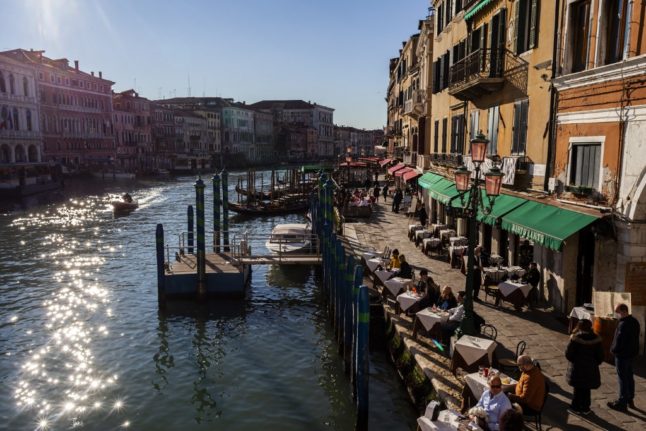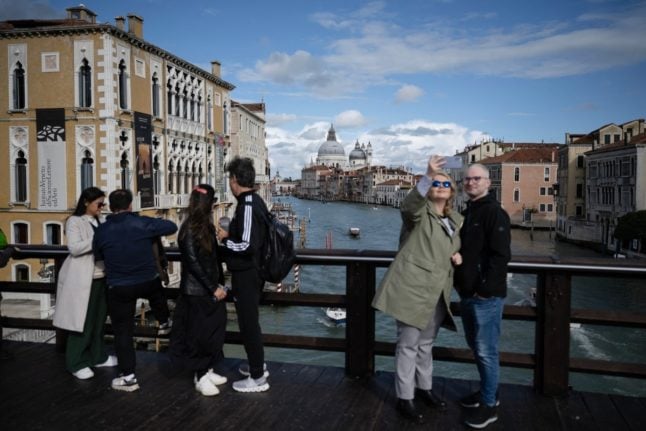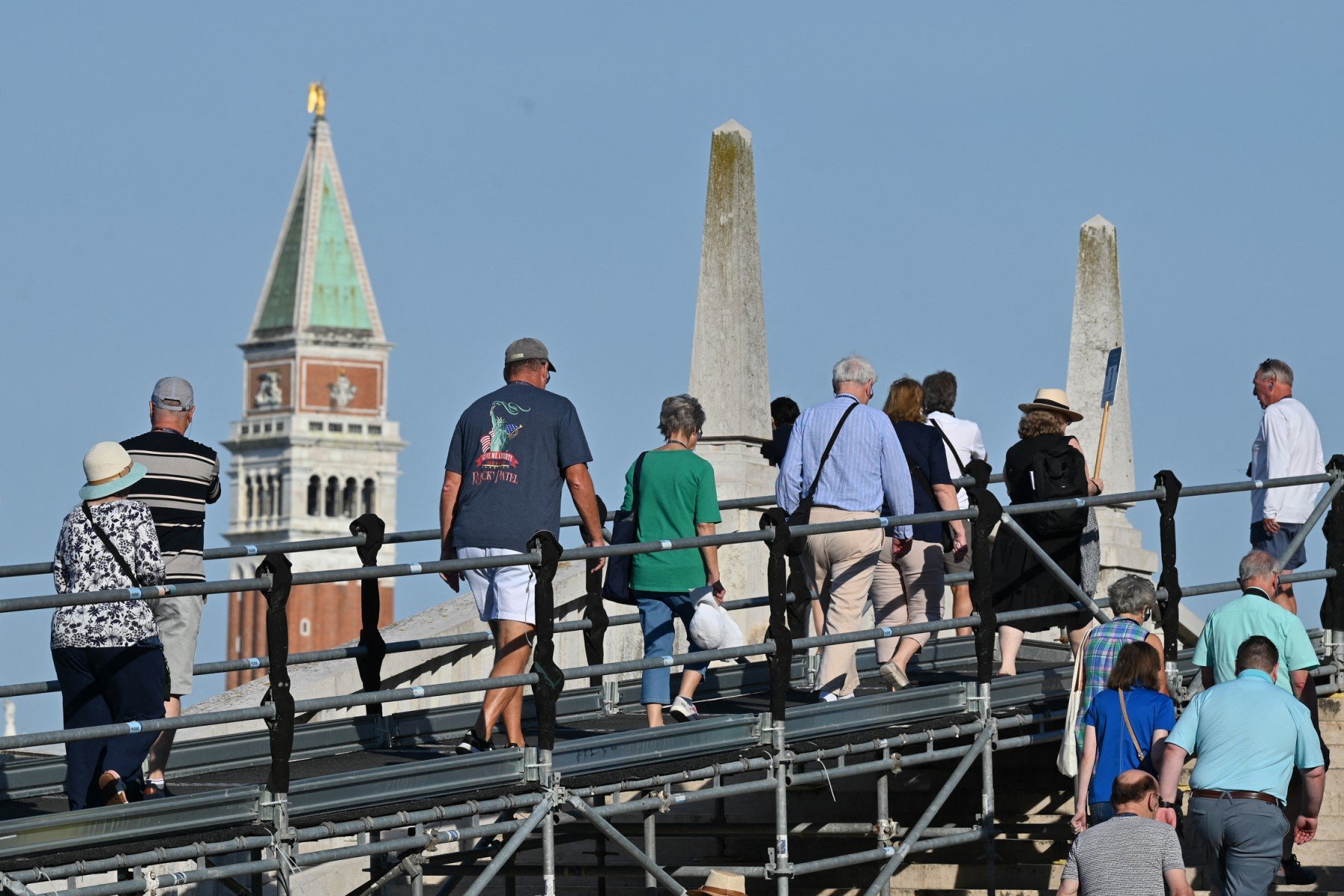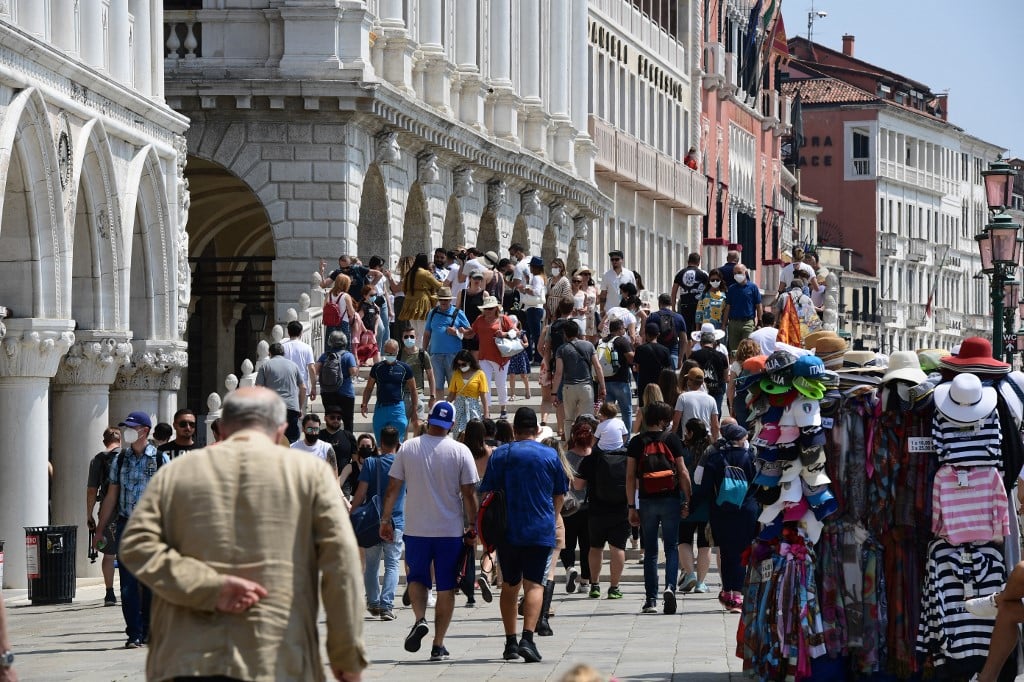Question: I own a property in Venice, but I’m not registered as a resident as I don’t live there permanently. Will the new ‘tourist tax’ apply to me?
Many people who own homes in Italy are not registered as residents, even if they spend significant amounts of time in the country.
But in certain parts of the country, second-home owners and other frequent visitors are becoming concerned that they may now be hit by additional charges and rules aimed at controlling tourist crowds.
Venice will introduce a new entry fee in January 2023. While residents will no doubt be exempt from the tax, what are the rules for others who spend a lot of time in the area – but aren’t officially resident?
READ ALSO: How will the tourist-control system work in Venice?
Commonly known as the ‘tourist tax’, the new charge or contributo di accesso will apply to daytrippers looking to visit the city centre or any of Venice’s smaller islands.
It will cost between three and ten euros and will be in place from January 16th, 2023, city mayor Luigi Brugnaro confirmed earlier this month.
The goal of the measure, said Brugnaro, is to encourage visitors to stay in the city overnight, and to better regulate seasonal crowds as Venice’s pre-pandemic overtourism problems begin to resurface.
While it was clear as far back as last April that those residing within the Comune di Venezia – which includes Mestre and all minor islands – would be exempt from paying the entry fee, uncertainty still lingers over others who are not registered as residents in Venice.
The local authority’s website states that those who own “property located within Venice’s municipality and their close family members” will be exempt from the fee, as long as they’ve paid their taxes: second-home owners are required to pay a tax known as IMU (Imposta Municipale Unica, or Unified Municipal Tax) on the property in question.
It’s worth noting that IMU must be paid by all second-home owners, regardless of their nationality. It’s generally paid in two instalments: one in summer and the other in the last months of the year (this year’s second payment is due on December 16th).
READ ALSO: Can second-home owners get an Italian residence permit?
So, are we certain that those who own a second home in Venice and regularly pay their IMU are exempt from the entry fee? Well, they should be.
But Venice’s city council hasn’t yet approved the final text of the decree setting out the rules for applying the charge. So for now, this exemption is not confirmed.
Additionally, should the exemption for second-home owners be confirmed, it isn’t yet clear what type of documents they would be asked to produce in order to confirm their ‘exempt’ status.
Alongside residents and second-home owners, those working or studying in Venice’s city centre or any of its smaller islands should also be exempt from the contributo, as will be visitors spending the night in one of the city’s hospitality structures (hotels, B&Bs, hostels and so on).
Exceptions are also expected to apply to children under six years of age, anyone born within the Comune di Venezia, people with disabilities and their carers, public officials, and people visiting family members. A full list is available here.
The local authority in Venice is expected to confirm the rules and exemptions in the coming weeks.
Find more information about how the new charges will apply in a separate article here.
Do you have a burning question about life in Italy that you’d like the The Local’s writers to answer? Email us here.





 Please whitelist us to continue reading.
Please whitelist us to continue reading.
Member comments